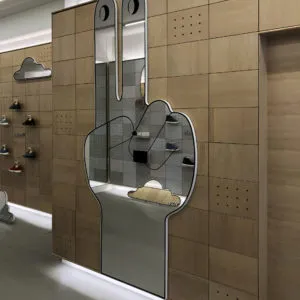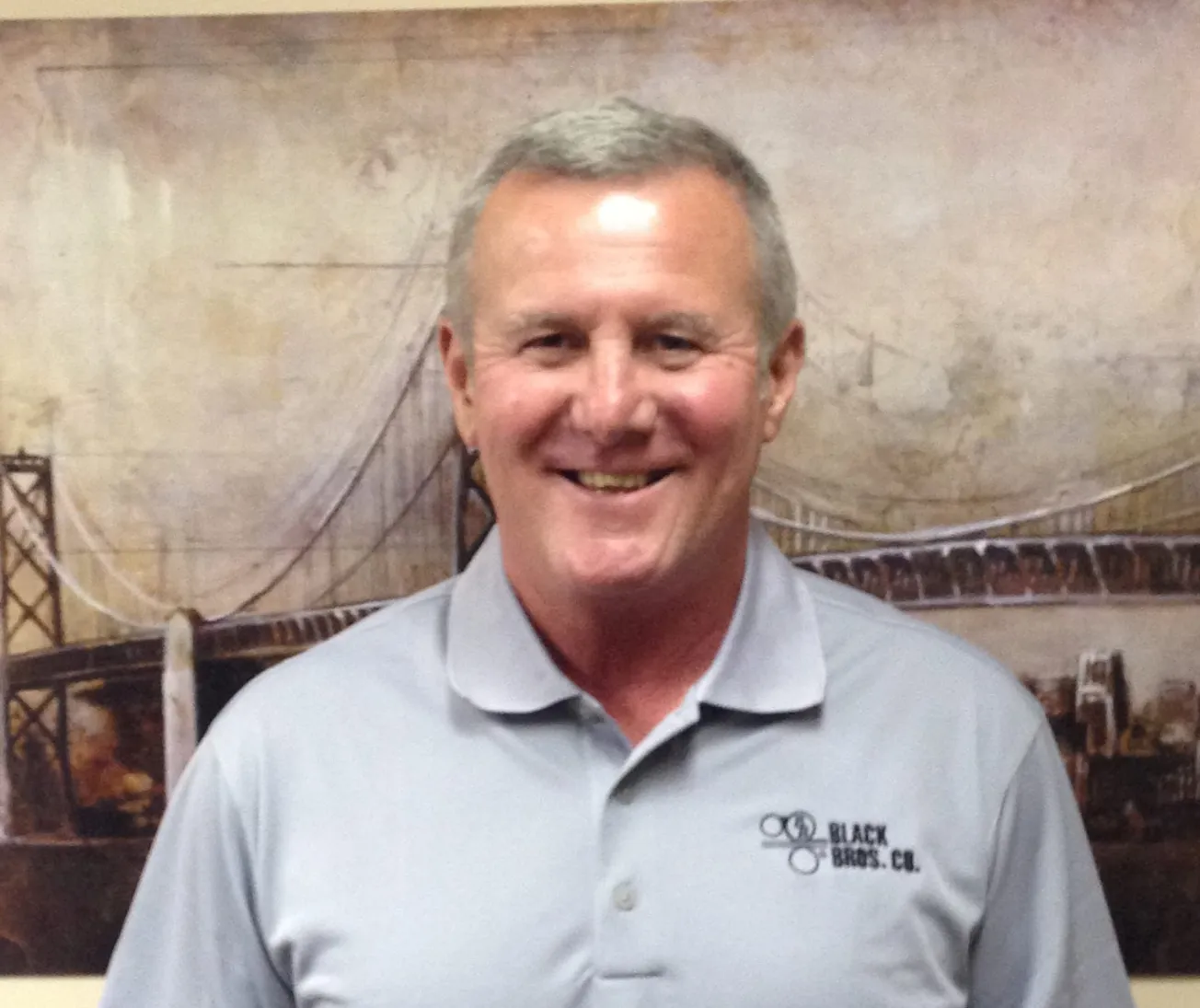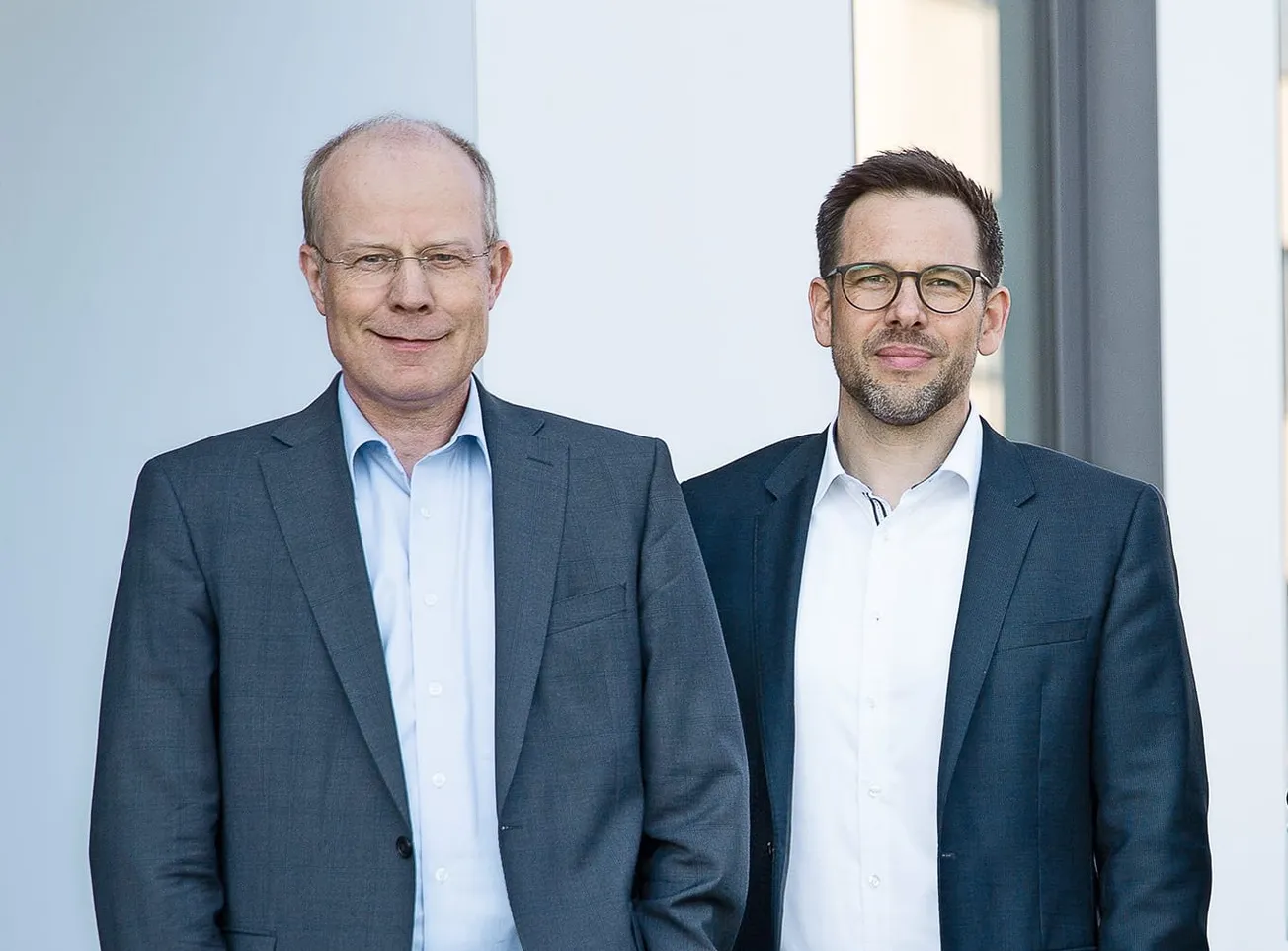Table of Contents
Allbirds takes simple yet innovative approach to shoes, retail


From the beginning, Allbirds aspired to innovate while keeping things simple and sustainable. The strategy worked, so it’s not surprising that the 4-year-old shoe company took the same approach to its retail stores.
Kevin Boo, an account executive with Fleetwood Fixtures, which manufactures custom store interiors, explained Allbirds’ retail approach this way:
“Allbirds focuses on the customer experience in the store, so presenting their products in the best way and telling the background of their mission to provide sustainable shoes and examples of the material in the shoes is all part of the story and experience for the customer.”
Fleetwood, working with Allbirds’ in-house team and the company’s marketing firm, created three of Allbirds’ five stores, with the latest being a Chicago location that opened in March. Among the stores’ key features are moveable wall tiles made of medium density fiberboard with fir veneer and concrete decorative finishes. Some of the tiles are perforated to accept replaceable fixtures to hold shoes for display.
“We strove to make an adaptable, flexible store that can be reworked to show the newest products and seasonal offerings in the best configurations and groupings to keep the store fresh and simply show the shoes to best advantage and also be able to be inspected by the customers up close and in their hands,” Boo said.
The retail stores are part of Allbirds’ direct-to-consumer business model, through which brands control their own manufacturing and distribution and sell directly to consumers online, in brick-and-mortar shops, or both.
 Allbirds was founded in San Francisco in 2015 by a former soccer player from New Zealand, Tim Brown, who saw a need for a new kind of shoe. Allbirds are known for being soft, comfortable and sustainable. The company takes a minimalistic approach to its shoes and sales, offering only about a half-dozen varieties mostly in solid, understated colors. Nearly all of the shoes sell for $95.
Allbirds was founded in San Francisco in 2015 by a former soccer player from New Zealand, Tim Brown, who saw a need for a new kind of shoe. Allbirds are known for being soft, comfortable and sustainable. The company takes a minimalistic approach to its shoes and sales, offering only about a half-dozen varieties mostly in solid, understated colors. Nearly all of the shoes sell for $95.
“I had a very, very simple insight that shoes were over-logoed, over-colored and changed all the time for no reason,” Brown told CNBC Make It for a December 2018 story. “It was very, very difficult to find ‘simple.’ And I set out to solve that.”
Allbirds’ original shoe is made of super-fine wool from the South Island of New Zealand that is the same quality found in luxury men’s suits. Allbirds are made in Italy with proprietary technology and have soles made from a combination of rubber and foam that is both lightweight and resilient enough for running. In 2018, the company introduced its first line of non-wool shoes called Tree, made with fiber derived from eucalyptus trees.
Keeping with the sustainability theme, the shoes’ laces are made from post-consumer recycled polyester—“one old plastic bottle becomes one pair of durable, sleek shoelaces.”
The shoes, which are designed for sockless wear, fit into the “athleisure” category, meaning they are good for lighter workouts but also can be worn for casual and even more dressed-up occasions. Allbirds are cool in the heat and warm in the cold, the company’s website says, and they can be machine-washed.
 The company initially made its shoes available on its website March 1, 2016. It relied heavily on social media and word of mouth for sales, and the shoes caught on with the nearby Silicon Valley tech community and trend-setting celebrities such as Oprah Winfrey, Matthew McConaughey and Gwyneth Paltrow.
The company initially made its shoes available on its website March 1, 2016. It relied heavily on social media and word of mouth for sales, and the shoes caught on with the nearby Silicon Valley tech community and trend-setting celebrities such as Oprah Winfrey, Matthew McConaughey and Gwyneth Paltrow.
Allbirds tested its direct-to-consumer retail prospects in pop-up stores, including one in New York City, and saw success, said Fleetwood’s Boo. “So the customers drove the decision to go to brick and mortar stores through great traffic in the pop-ups.”
Fleetwood, which is based in Leesport, Pennsylvania, and its companion firm, High Country Millwork, based in Longmont, Colorado, design retail space for large companies and others just emerging in the retail market. Besides the recently opened Chicago location, Fleetwood built Allbirds stores in New York City and San Francisco. Allbirds has plans for eight more stores in the U.S., and Fleetwood hopes to be involved, Boo said.
The three Fleetwood-created stores share a design scheme but reference back to their locations in specific areas. In Chicago, the service desk has touches that evoke the famed ivy-covered brick walls at Wrigley Field, home of the Cubs. The desk is red brick and has a section of ivy covering the vertical face. Metal display fixtures in each store are painted in signature colors based on location. Chicago’s shoe display armatures in the front window, for example, are finished in a light blue taken from the city’s flag.
Allbirds’ lighthearted approach is reflected in signature cartoon  shapes that begin at the entrance with foot-shaped door handles created by Fleetwood for the stores. It continues with graphic cartoon mirrors that set the scene and let shoppers see how the shoes look on their feet. “You literally see how the shoe appears by looking in a cloud-shaped floor mirror,” Boo said.
shapes that begin at the entrance with foot-shaped door handles created by Fleetwood for the stores. It continues with graphic cartoon mirrors that set the scene and let shoppers see how the shoes look on their feet. “You literally see how the shoe appears by looking in a cloud-shaped floor mirror,” Boo said.
The stores’ perimeter walls are made up of the moveable wall tiles with solid and perforated designs. The perforated tiles can accept display fixtures that hold the shoes on customer wooden forms or rods. The display fixtures mount into faceted metal magnetic grommets that hold them in position but are removable to relocate, replace with a different style or rearrange, Boo said.
The walls are tiled in different finishes, with concrete-finished tiles in many colors of gray on one side and fir veneer tiles in a randomly organized mix of horizontal and vertical grain on the other.
“Together, they form an interesting, ever-changing patchwork of tiles,” Boo said.
MDF is the perfect substrate for both sets of tiles, he added. “The use of MDF for the wall tiles reinforces the Allbirds branding with a nod to the natural materials they hold important and sustainable man-made materials as you see in their products.”







